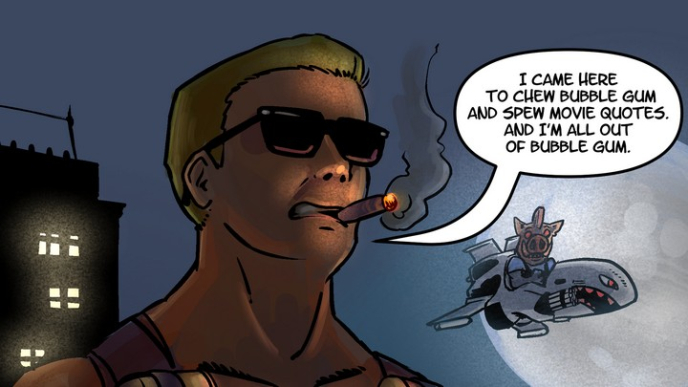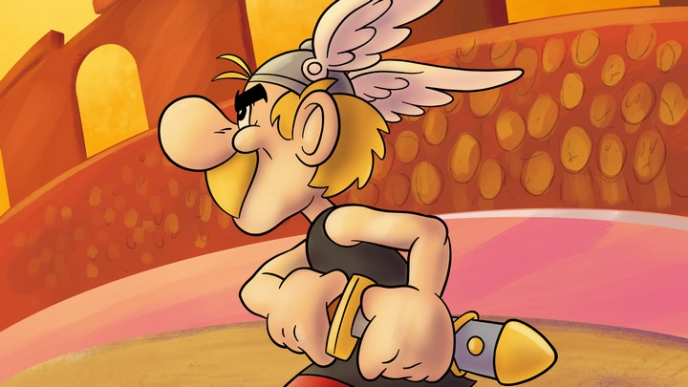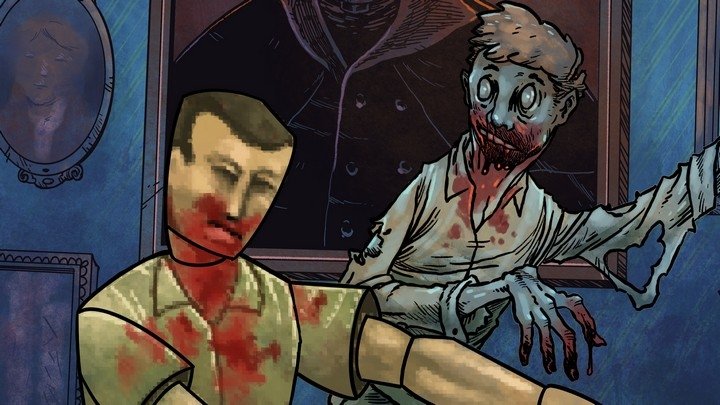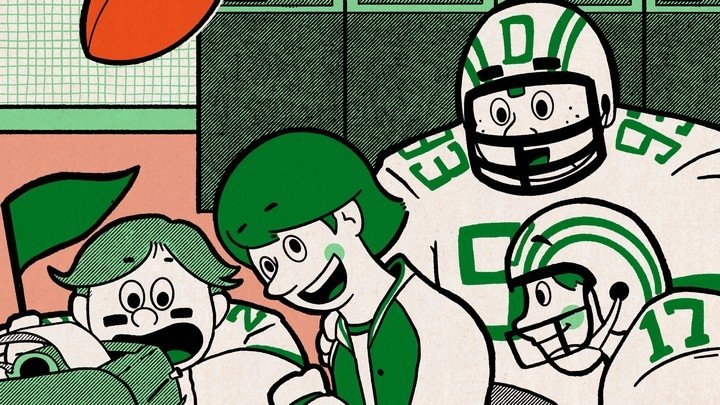Retro Re-release Roundup, week of December 21, 2023
The little-played successor to Sunset Riders finally leaves Konami's vault.
One quick notification for those of you who've been enjoying the recent reissues of vintage Japanese computer games: EGG Console publisher D4 Enterprise has opened a public Google form for people to officially request games they'd like to see reissued; the form's in Japanese, but you can find a breakdown of the form here, should you need it, as well as a rundown of the games already confirmed to be appearing in the not-too-distant future.
ARCADE ARCHIVES
- Platform: Nintendo Switch, PlayStation 4
- Price: $7.99 / €6.99 / £6.29
- Publisher: Hamster / Video System
What's this? A run-and-gun action game with an over-the-top future-but-ninjas setting, originally developed and distributed in arcades by Konami in 1993 and never ported or reissued until now. The player and up to three pals are tasked with choosing from five distinct player-characters and taking on the evil Skull Enterprise in order to rescue their kidnapped comrade; players can throw shuriken, slide/roll/dash and jump between platforming planes in a manner not dissimilar to Konami's earlier Sunset Riders and can also perform melee attacks at close range, with the properties of their shot, melee and dodge/plane-switching moves being distinct to each character. (The Arcade Archives version includes both the Japanese and North American versions and, as is typical of Konami games of the era, the American version's significantly tougher, and not necessarily in a fun way.)
Why should I care? For reasons known only to Konami, Mystic Warriors saw only modest distribution overseas and very little distribution in Japan, and this long-awaited reissue is bound to prompt countless people to once again ask: why? It's the sequel to Sunset Riders you wanted but probably never knew about; it's the game adaptation of the cartoon you wish you could've watched every weekend, it has more Konami techno-orchestra than you can shake a stick at and it's a bombastic capstone to the short-lived era of plane-swapping platform action games as codified by Rolling Thunder.
Helpful tips: First off, if ya wanna play with 4 players, you have to set the 2P/4P toggle in the options menu. Secondly, they've added a slowdown reduction toggle in the game settings and I suggest you turn it on as the game can really chug, particularly in co-op. Thirdly, if you enter the Konami Code on the main Arcade Archives menu, you can access a hidden sound test.
EGG CONSOLE
- Platform: Nintendo Switch (worldwide)
- Price: $6.49 / ¥880
- Publisher: D4 Enterprise / T&E Soft
What's this? An overhead "active RPG", developed almost solely by Tokuhiro Naito for T&E Soft and published for the PC-8801 computer in 1984, with subsequent ports produced for most other contemporary Japanese computers of the day, as well as a Famicom remix, titled Hydlide Special, which released in Japan in 1986 and for the NES in North America (as simply Hydlide) in 1989; players control the hero Jim (yeah) on a quest to reclaim the cursed princess and reclaim the world of Fairyland from a demon that was unsealed from within three magic jewels, which he seeks to achieve by bumping into enemies, collecting items to solve basic puzzles and occasionally standing dead still to recover HP.
Why should I care? The entire Hydlide series has, for mostly circumstantial reasons, been dismissed or downplayed as little more than a footnote outside of Japan, but this first game in particular was a massive critical and commercial success in Japan and one whose influence on many of the Japanese action-RPGs that followed for years after, and I should hope that people might be willing to re-evaluate it outside of the context of most people only playing the NES version after having already played newer games that used it as a foundation (like Zelda, for one). I'll also add that, unlike a lot of the action-RPGs that have and will be reissued via EGG Console, I really do think this is a game that the average player could genuinely figure out all on their own without a walkthrough or glossary of hidden win conditions (with one exception, perhaps...)
...and here's that exception: In order to rescue the final fairy, you have to let the wizard enemy hit you with five magic attack before you defeat it, and if you kill any of the enemies on the screen before being hit five times, you'll have to exit and re-enter the screen with the wizards and let them start hitting you again.
- Platform: Nintendo Switch (worldwide)
- Price: $6.49 / ¥880
- Publisher: D4 Enterprise / Game Arts
What's this? A vertically-scrolling shooting game presented from a unique, slightly-tilted overhead perspective, originally developed and published for the PC-8801mkIISR computer by Game Arts in 1986 and subsequently ported to Fujitsu FM-77AV, with international ports published for DOS and Apple IIGS by Sierra in 1989, and successive sequels for the Sega Mega CD, PlayStation 2, Xbox 360 and smartphones. In addition to the unique left/right-mounted weapon system, whose configuration can be adjusted before starting each area in accordance with the player's performance, the game's most immediate notable features are the heavy implementation of real-time polygonal graphics and some laughably quaint lines of Japanese speech produced entirely via FM synthesis.
Why should I care? You're capable of admiring what was a truly admirable technical achievement relative to its time and hardware, you want a shooting game with a ton of stages and a gameplan based on the strategic memorisation of each stage and attendant weapon loadout, or you just want to A/B them with the Mega CD game, or even the PS2 game, so you can marvel at just how similar these games are to one another, from the basic game feel to even specific stage layouts and motifs.
Useless fact: If, through the unintuitive overcollecting of certain powerups long after they've been maxed out, you somehow achieve a counterstop, the end-game boss will decide they don't want to fight you and will completely forego the final boss battle.
G-MODE ARCHIVES+
Tantei Kibukawa Ryousuke Jiken-tan Vol.13: Tasogare wa Lazuline no Tsuioku
- Platform: Nintendo Switch (Japan), PC via Steam (worldwide)
- Price: $7.99 or equivalent
- Publisher: G-MODE / And Joy
What's this? Episode thirteen of And Joy's (formerly Genki Mobile) series of popular detective mystery adventure games; in this episode, the cast is investigating the key witness in a murder trial who suddenly emerged from years of obscurity and with no memories of anything prior to the alleged murder, who seems to have a hidden connection with their regressive hypnotherapist...
Why should I care? This game is said to be the first entry in the "third season" of the series, with episodes 1 through 10 (led by future Paranormasight creator Takanari ishiyama) being the "first" season, and the episodes between being a transitory "second season"; what that means for the quality or tone the series, I don't really know, beyond the vague understanding that people don't like the later games as much, but y'all can be the judge, I suppose.
Useless fact: Most of the games from this era of the series were originally distributed in multiple parts, which G-MODE is combining into one big game for their Archives reissues.
PLAYSTATION PREMIUM
Buzz Lightyear of Star Command (PlayStation), Thrillville (PlayStation 2), Thrillville: Off The Rails (PlayStation Portable) plus Mega Man Legacy Collection & Mega Man Legacy Collection 2 (PlayStation 4+5)

What're these? Two distinct versions of the theme part construction sim developed by former Rollercoastr Tycoon and future Planet Tycoon devs Frontier Interactive, a licensed game based on a TV cartoon spinoff series based on a character from Pixar's Toy Story and, for no particular reason, two modern collections of classic Mega Man games. (Okay, there's a reason: Mega Man's anniversary just passed, and Mega Man 11's free on the service right now, too.)
Why should I care? I genuinely adore Sony's fixation on the strangest throwaway licensed games, even if they're arriving at the expense of any of the games one would reasonably associate with classic PlayStation, and if they keep this up for a few more years, perhaps the rest of the world might come to share that fixation as well.
Helpful tip: The Kratos-guesting, single-player-only PSP fighting game Soulcalibur: Broken Destiny was finally made available for individual purchase/redemption, after hitting Premium several months back.
REPLICA/"MINI" PLUG-AND-PLAY HARDWARE
Egret II Mini Arcade Memories Vol.1 expansion pack
- Platform: Egret II Mini (Japan)
- Price: ¥8778
- Publisher: Taito
What's this? The second expansion pack for last years Egret II Mini desktop arcade unit, which adds ten additional games via the SD card slot and comes bundled with a 32P strategy guide/interview book, ten additional mini how-to-play arcade cards and a Taito 70th sticker set. Notably, select games in this expansion (Night Striker and Operation Wolf) are compatible with Sharp and Dempa Micomsoft's recent Cyber Stick USB controller reissue, originally released in tandem with the Mega Drive Mini 2, which allows for authentic, arcade-accurate analog control.
Which games are included? This expansion includes six games by Taito themselves — Return of the Invaders, Wyvern F-0, Crime City, Yuyuu no Quiz!Go!Go, Operation Wolf and Night Striker — plus four third-party games: Chuuka Taisen (aka Cloud Master, developed by Hot-B), Kyuukyoku Tiger II (aka Twin Cobra II, developed by Takumi using a Toaplan IP), Tokushu Butai U.A.G.(aka Thundercade, developed by Seta) and Wardner no Mori (aka Wardner/Pyros, originally developed by Toaplan).
Why should I care? Bless 'em, they're not just scraping the barrel here:among the couple of proven classics (Night Striker, dude) are some games that would've required some serious wrangling, both on the technical side (Wyvern F-0 used a mirror-projection cabinet) and the licensing side (despite being part of a Toaplan series, Kyuukyoku Tiger II's not owned by Toaplan), and I'm sure anyone who shelled out for the Cyber Stick is happy to find another justification for doing so.
Helpful tip: Taito recently ran another user survey for a potential third expansion, and they claim it received significantly more respondents than the survey that preceded this expansion, so they might be adding games to this thing for a while yet...
OTHER
- Platform: Nintendo Switch (worldwide)
- Price: $6.99 or equivalent
- Publisher: Imagine Software / Pixel Games
What's this? An emulated collection containing five games in the venerated(?) British microcomputer series, Monty Mole: the supposed mainline trilogy of Wanted; Monty Mole, Monty on the Run and Auf Wiedersehen, Monty plus the magazine cover-tape minigame, Moley Christmas, and a spinoff starring a secondary character from a previous game, Sam Stoat: Safebreaker. These games are playable in both their ZX Spectrum and Commodore 64 versions where applicable, and are augmented with save states (including pre-prepared states to give players an easier time), real-time rewind and various screen settings.
Why should I care? I have not, to my recollection, played a single one of these games, but I know them to be a respected pillar of the small but important canon of flip-screen thing-grabbers exemplified by Jet Set Willy, and I am willing to take it on faith that they're not horribly obtuse or punitive. Maybe Stuart begs to differ, iunno.
Useless fact: The game from which Sam Stoat was derived is not a part of this collection, despite being the direct followup to the original Monty Mole — I presume it's because it's an oblique-perspective game and not a side-view game, and because they want to try and milk this series for a second collection, but it does strike me as an odd exclusion.
- Platform: Nintendo Switch, Xbox, PlayStation 4/5 (worldwide)
- Price: $7.99 or equivalent
- Publisher: Dimps / 3goo
What's this? An enhanced port of Dimps' 2004 arcade fighting game The Rumble Fish, recognized by fighting game diehards for its then-novel tweened 2D animation system; this game received a slightly-expanded port for the PlayStation 2 in Japan and a recent, unadorned port of the original arcade version as an exclusive bonus for certain versions of the recent remaster of The Rumble Fish 2, and this new commercial version is based on the more recent port with a few crucial additions like an enhanced training mode and online play with rollback netcode. (There's a PC version coming, too, but it's been pushed back a week.)
Why should I care? As a game, it's all but superseded by its sequel; as an attempt to present the definitive version of the original game, it sadly neglected to draw from the more content-laded PS2 version (which included early playable versions of characters that officially debuted in the second game) but it might very well suffice as a modern, faithful conversion of the arcade build, and it's nice that they didn't let this port languish in SKU-gimmick hell.
Helpful tip: This port's so arcade-authentic that you need to enter a code to play as the boss, which you should be able to find listed on your respective store page. At least they elected not to make the boss paid DLC this time, huh?
IF THIS SONG ISN'T ALREADY LOOPING IN YOUR HEAD 24/7, IT OUGHT TO BE
Happy holidays, Retronauts.




